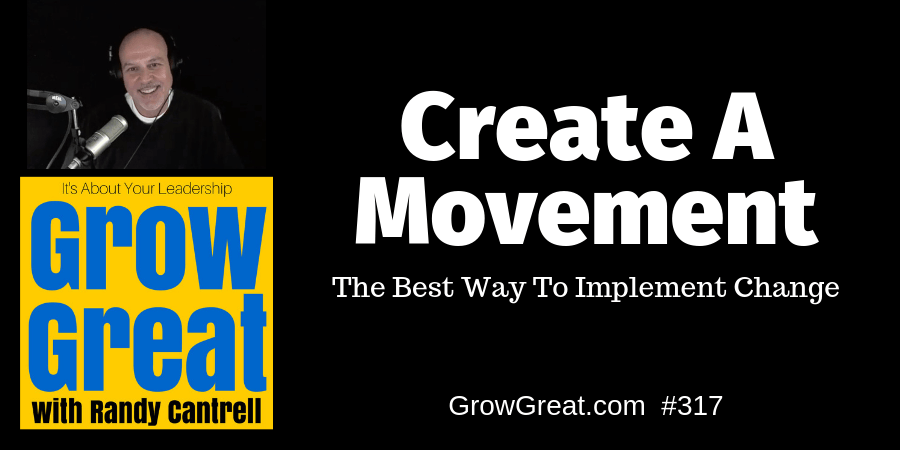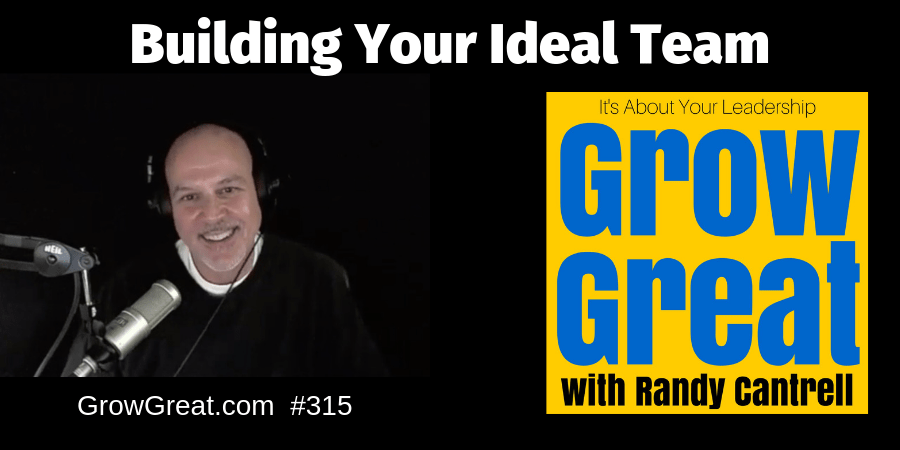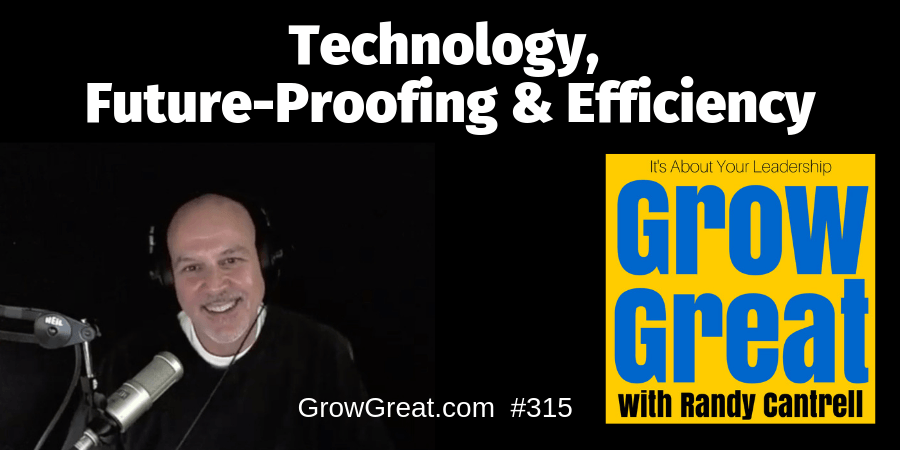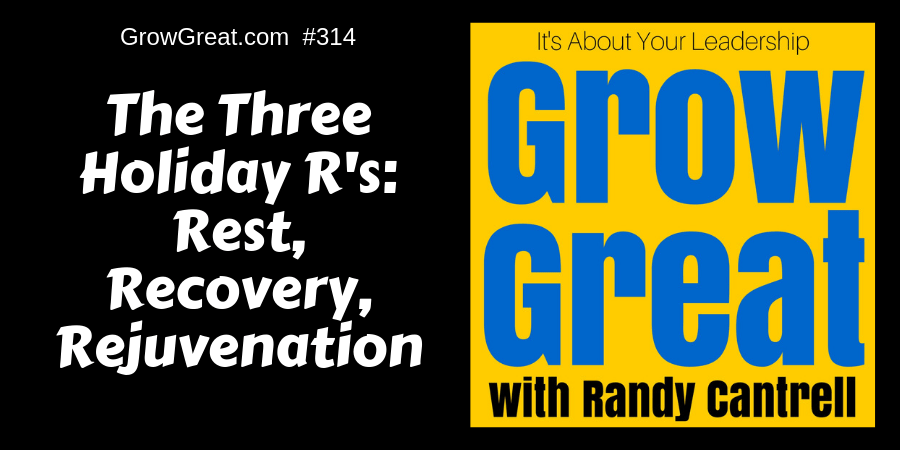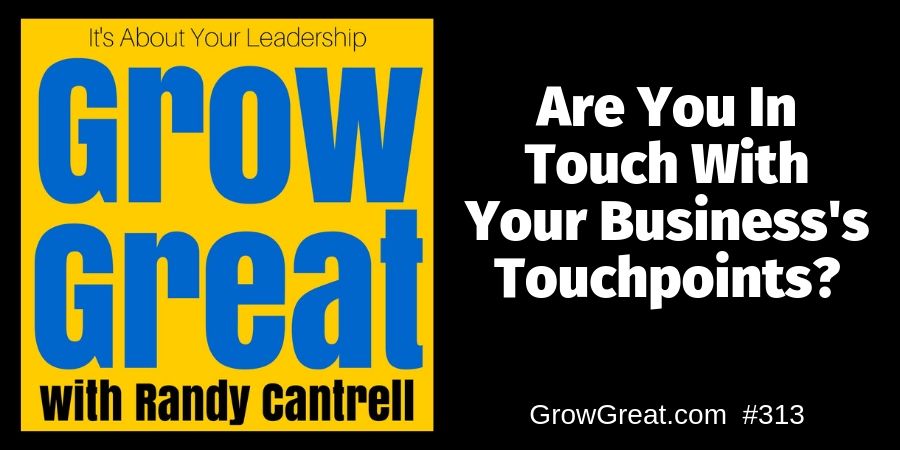Guiding Vision: The First Basic Ingredient Of Leadership (318)
Podcast: Play in new window | Download (Duration: 7:47 — 7.5MB)
Subscribe: Apple Podcasts | Spotify | RSS | More
Warren Bennis, the brilliant, but reluctant expert on leadership believed a guiding vision was the first ingredient of leadership. Leaders need to have a clear vision of what they want to do. They also have to possess the determination and resolve to persist through setbacks, even failures.
Where are you going?
Personally and professionally?
It makes sense that nothing else comes before a guiding vision. Guiding indicates it’s a direction with a plan. It’s not merely wishful thinking. There’s a purpose and intent behind the vision.
Great leaders see the future first.
What do YOU see? How are you helping your organization see what you see?
Let’s break down a few things that may help.
Step 1 – Don’t assume people can read your mind.
It’s far too common for a leader to become frustrated with people because they don’t know what she’s thinking. We’re living with our thoughts 24/7. Surely we’ve expressed all these thoughts – especially thoughts about where we’re heading. Hold on. Check yourself.
People are working hard to read you. At times, they’re mostly getting it wrong.
You don’t realize it, but you’ve got a scowl. It’s nothing more than a dull headache coming on and inside you’re thinking, “I do not need a headache right now.”
People think you’re displeased with them. One employee even thinks you disapprove of what she’s wearing. So it goes with how people can often MIS-read you.
You must communicate without relying on your ESP.
Step 2 – Have a system of communication.
You can leave things to chance, but as you’d imagine — it’s very risky. Don’t leave your communication to pure chance.
This isn’t about managing the narrative or spin. I’m hoping you operate in a no spin fashion where you can be candid with people. Especially when it comes to the guiding vision you’re sharing.
What’s the process for sharing information? What’s your preferred method of communication?
Every organization has a favorite way of distributing communication. Mostly, it stems from YOU, the leader. The entire organization will follow your lead by watching how you prefer to communicate.
If you prefer email, then it’s highly likely you’ve got an email focused culture. I’d bet most information in your company is shared via email because the organization has figured out it’s your preference.
So which is it? What’s your preferred way to communicate inside your company?
Electronic? Small group meetings? Companywide meetings? Formal? Informal?
Figure this out and then figure out if you’d like to change it. It may not be working as well as you’d like. Maybe you’d like to change it. Then do it.
But have a system.
I’ve found guiding vision conversations were best done with my leadership team first, then distributed companywide in an in-person meeting with hard copy communication to back it up. That was my preference. You need to know your preference.
Step 3 – Once is not enough.
Never assume that one communication is enough. Some will get it very quickly. Others won’t. You don’t want to leave anybody in the dark.
It’s up to you to make sure that the message is received and understood. You need to repeat a consistent message about your guiding vision.
We attend worship services and hear preaching each time. The Gospel Story is ancient. The church was established in AD33. The message is preached consistently service after service to make sure it penetrates our minds and lives. To instruct old heads like me and young heads like my grandchildren. Once isn’t enough.
You should be the Chief Evangelist inside your company. Preach the vision you see. It’ll help everybody understand it and it will cement in the minds of your team that you mean it.
Step 4 – Make every objective congruent with your guiding vision.
Your guiding vision can’t be one thing and all your short-term objectives something completely disassociated with it.
“We’re here to make lives better” sounds great except when employees feel you do nothing but make their lives miserable. Don’t be dishonest. Be real. Be congruent.
Step 5 – Provide feedback.
Guiding visions can be violated. We don’t always hit the mark. It’s important that the troops know when you’re hitting the mark so they can be encouraged to do it more often, and better. It’s just as important they know when you fail to hit the mark. Sometimes personal ownership might be required.
I’ve stood in front of people and apologized for my own failure to hit the mark. The guiding vision should be like true north. Violations have to be acknowledged. Corrections must be made. And good or great adherences to the guiding vision should be properly celebrated.
Are you putting out fires and killing rats? Not paying much attention to a guiding vision? Then you’re attempting to leapfrog the first essential ingredient to effective leadership. Go back to home base, don’t collect $200 and get it right. 😉
Be well. Do good. Grow great!
Randy
Guiding Vision: The First Basic Ingredient Of Leadership (318) Read More »

